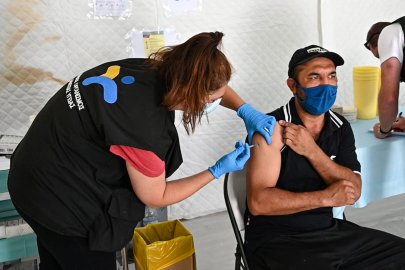Healthcare access program for migrants extended in Greece
Source: InfoMigrants: reliable and verified news for migrants – InfoMigrants
Thousands of migrants and refugees in Greece are breathing a sigh of relief after the government announced the extension of a healthcare scheme that provides free access to public health services. The EU-backed pogram has been extended until February 2024.
A healthcare program in Greece called “PHILOS Emergency Health Response to Refugee Crisis” was due to end, but now it has been extended until February 15 of next year.
This means that thousands of undocumented migrants and refugees will not lose vital healthcare benefits, while 670 medical professionals will keep their jobs.
In a media statement the migration ministry commented that the extension of the program was “deemed necessary in order to ensure the health coverage of those residing in the facilities run by the Ministry of Immigration and Asylum (MMA)” until the transition procedures to the new program are completed.
Healthcare for migrants, refugees
The PHILOS program, which is implemented by the Hellenic National Organization for Public Health (EODY) for the health ministry, has been in operation since 2017. It provides health-related and psychosocial services to people living in migrant and refugee camps.
The program is funded by the Asylum, Migration and Integration Fund (AMIF) of the EU’s DG Migration and Home Affairs.
Number of unaccompanied minors drops
Meanwhile, there has been a slight improvement concerning the situation of unaccompanied minors in recent months. Currently, just over 1,624 migrant children are residing in various accommodation centers across the country.
This marks an improvement in the situation compared to the last eight months when the capacity for unaccompanied minors was consistently full.
The latest figures released indicate that although the situation regarding unaccompanied minors is still extremely difficult, it has eased over the last month.
Overall, Greece has a total capacity of 2,103 places in long-term accommodation centers (shelters, apartments) and an additional 198 places available in emergency accommodation facilities, so the figure of 1,624 represents a welcome reduction.
The figures show that 83% are boys and 17% girls, while just 4% are under 14 years old. They are staying in various types of accommodation facilities in the country from accommodation centers and semi-independent living apartments to emergency accommodation facilities and reception identification centers.
The original article: belongs to InfoMigrants: reliable and verified news for migrants – InfoMigrants .
